Jazz Guitar Corner: "Summertime" — Time to Use Your New Jazz Chords
All the latest guitar news, interviews, lessons, reviews, deals and more, direct to your inbox!
You are now subscribed
Your newsletter sign-up was successful
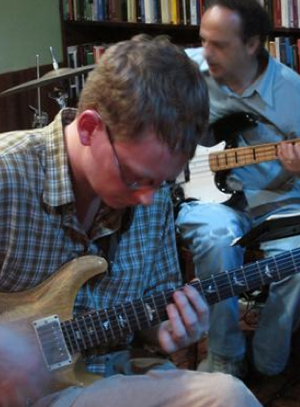
One of the most common questions I get from students and readers is, “I've learned tons of jazz chords, but how do I make them sound like music?”
Alongside your study of chord voicings on their own, one of the best ways to learn how to apply those chords to your comping and chord soloing is to learn sample chord studies based on the changes to popular jazz tunes.
In this jazz guitar lesson, you will expand your knowledge of jazz chords in a practical, musical situation, as well as learn how to play a chord study based on the chord changes to the classic jazz tune, “Summertime.“
Chord Shapes in This Study
Before you dig into the chord study below, or after you have learned the study and are looking for a reference for those chords, here are the general chord shapes used to create the comping etude in this lesson.
Because a lot of these chords are “rootless voicings,” which mean they don't have a root in their construction, or are chord inversions, where the root isn't the lowest note of the chord, working through these shapes outside of the study can be a helpful way to expand your knowledge and understand how the comping etude below was built.
Each of the chords in the charts below is written in the order that they appear in the study below, and the name of each chord is written above each shape on the fretboard. As well, the intervals for each chord are labelled on each shape in order to understand the construction and colors used in each shape in the study.
All the latest guitar news, interviews, lessons, reviews, deals and more, direct to your inbox!
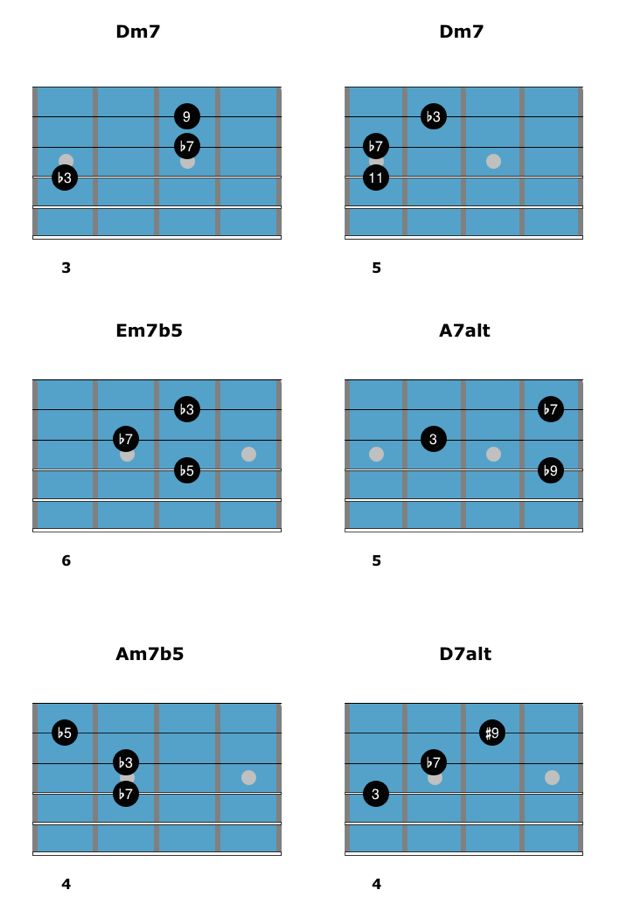
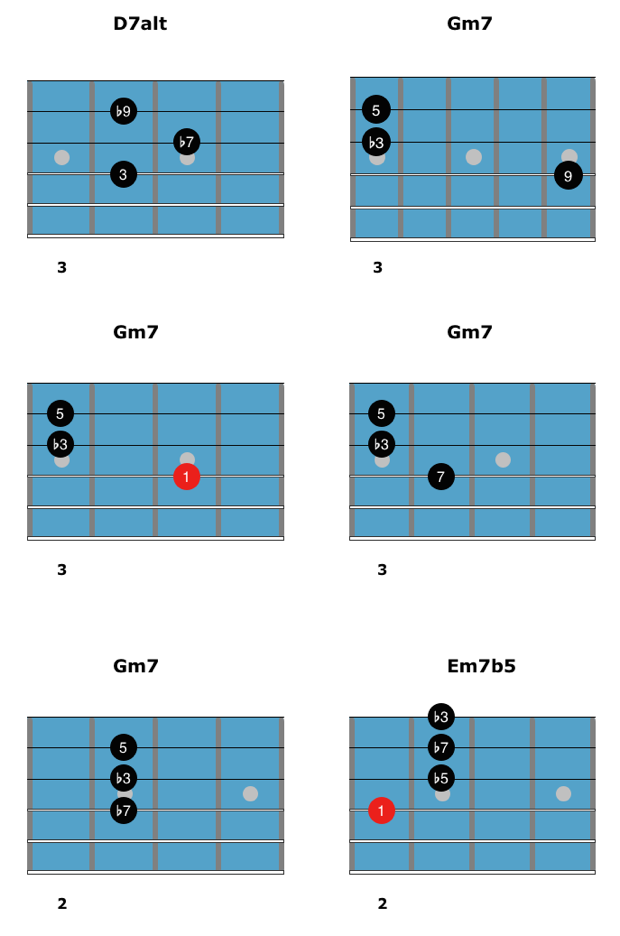
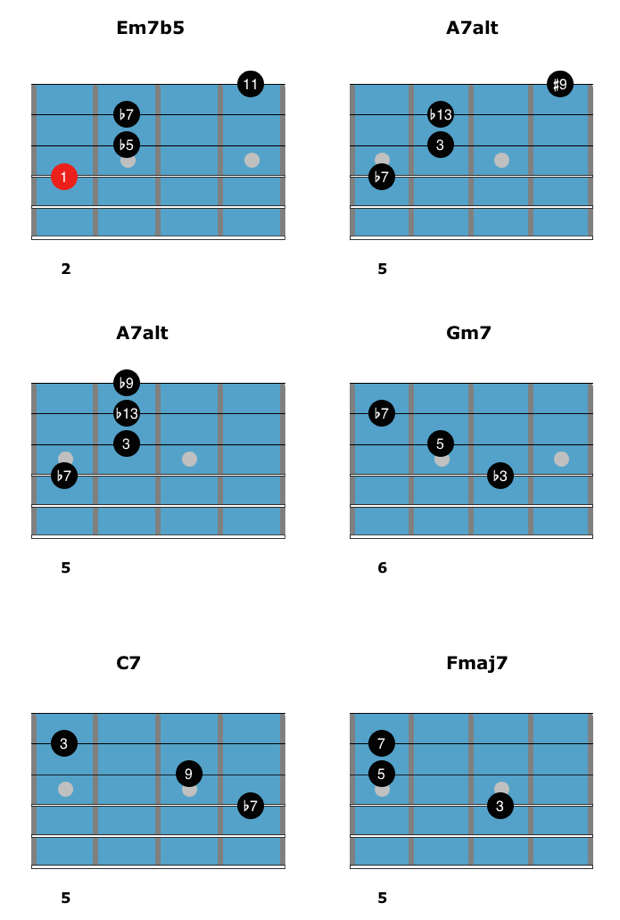
Jazz Guitar Chord Study
Now that you've looked into the chord shapes used in this study, here's the study itself that you can learn and apply to your own playing.
When first working on this chord etude, try learning one phrase at a time, four bars each. This will make it easier to digest the material and memorize the chord shapes in your studies. From there, you can piece the four, four-bar, phrases together to play the study as a whole.
Also, a great exercise when working on studies such as this one is to play the study along with a backing track, and then in the second chorus you improvise the comping with your own chords.
From there you keep alternating, one chorus of the study and one chorus of your own playing, which will help you integrate the material in this etude into your playing in a very natural and flowing manner.
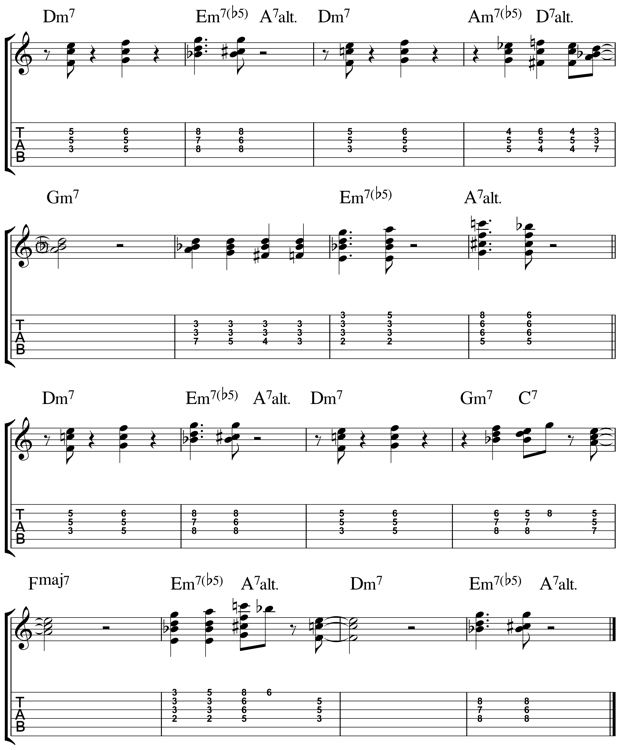
Do you have a question about this "Summertime" chord study? Share your thoughts in the COMMENTS section below.
Matt Warnock is the owner of mattwarnockguitar.com, a free website that provides hundreds of lessons and resources designed to help guitarists of all experience levels meet their practice and performance goals. Matt lives in the UK, where he is a lecturer in Popular Music Performance at the University of Chester and an examiner for the London College of Music (Registry of Guitar Tutors).
Matt Warnock is the owner of mattwarnockguitar.com, a free website that provides hundreds of lessons and resources designed to help guitarists of all experience levels meet their practice and performance goals. Matt lives in the UK, where he teaches Skype guitar students all over the world, and is an examiner for the London College of Music (Registry of Guitar Tutors).
